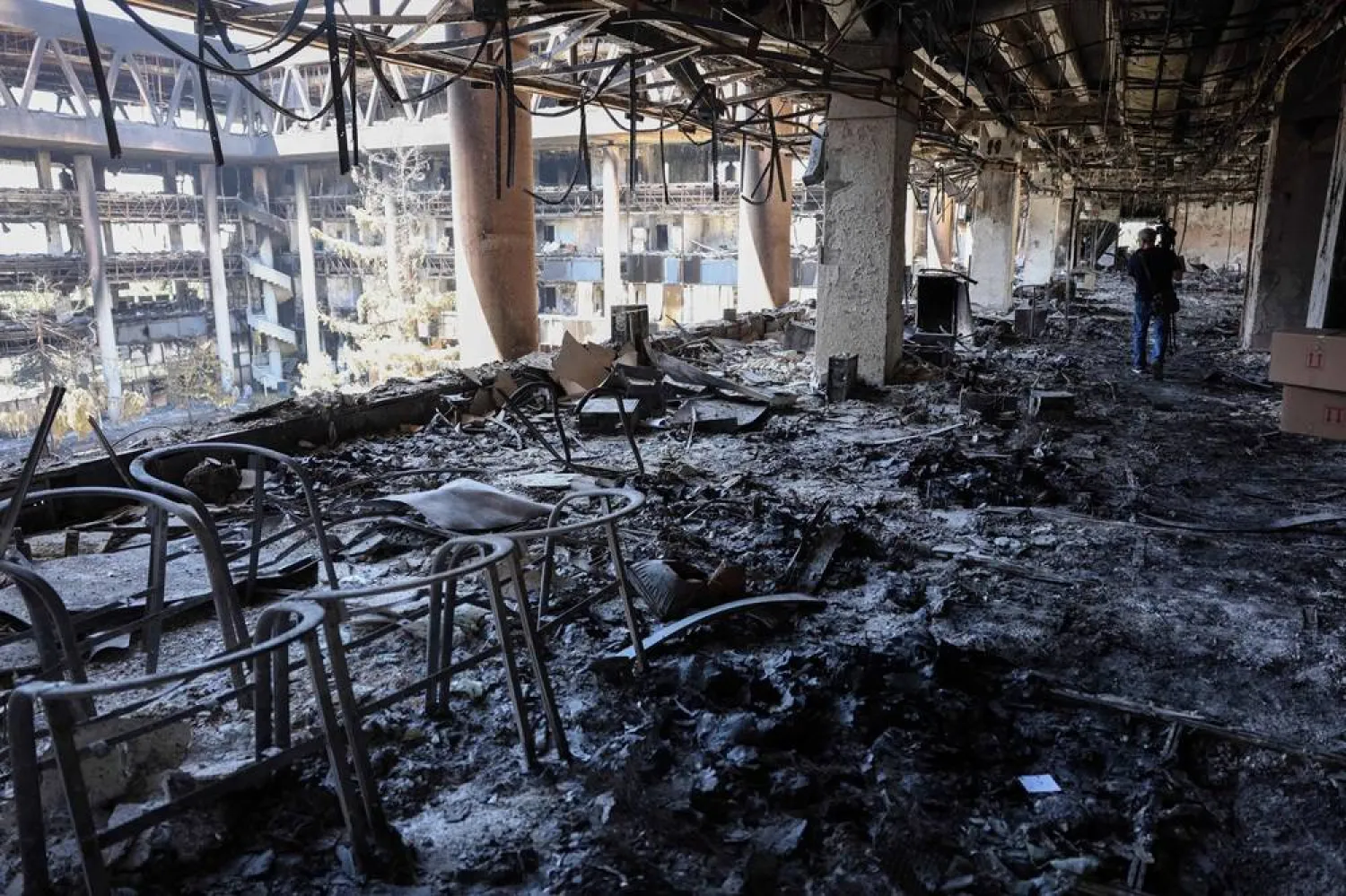Israel's war against Iran, now in its second week, will be "prolonged", military chief Eyal Zamir said Friday as the arch rivals traded fire and European powers held talks with the country.
"We must be ready for a prolonged campaign," Zamir told Israelis in a video statement, eight days after his country launched a massive wave of strikes it said aimed at stopping Iran from developing nuclear weapons -- an ambition Tehran has denied.
"We have embarked on the most complex campaign in our history to remove a threat of such magnitude," said Zamir.
"The campaign is not over. Although we have made significant achievements, difficult days still lie ahead."
Iran has responded with barrages of missiles and drones, which Israeli authorities say have killed at least 25 people.
A hospital in the Israeli port of Haifa reported 19 injured, including one person in serious condition, after the latest Iranian salvo, which President Isaac Herzog said hit a mosque.
Iran said on Sunday that Israeli strikes had killed at least 224 people since June 13, including military commanders, nuclear scientists and civilians.
As US President Donald Trump mulls the prospect of entering the war between the two foes, top diplomats from Britain, France and Germany were meeting with their Iranian counterpart Abbas Araghchi on Friday.
French President Emmanuel Macron said the Europeans were "putting a diplomatic solution on the table".
On the ground, Israel's military said it struck missile launchers in southwestern Iran after overnight air raids on dozens of targets including what it called a "nuclear weapons project" research and development center.
In Israel, sirens sounded in the afternoon after missiles were launched from Iran for the second time on Friday, with a military official saying that "approximately 20 missiles were launched towards Israel".
Iran's Revolutionary Guards said they had targeted military sites and air forces bases.
- 'Betrayal' of diplomacy -
Trump has said he will decide "within the next two weeks" whether to involve the United States in the fighting.
Britain's Foreign Secretary David Lammy said "a window now exists within the next two weeks to achieve a diplomatic solution", while agreeing with US Secretary of State Marco Rubio that "Iran can never develop or acquire a nuclear weapon".
Western governments suspect Iran of seeking a nuclear weapons capability.
The International Atomic Energy Agency said that while Iran is the only country without nuclear weapons to enrich uranium to 60 percent, there was no evidence it had all the components to make a functioning nuclear warhead.
"So, saying how long it would take for them, it would be pure speculation because we do not know whether there was somebody... secretly pursuing these activities," the agency's chief Rafael Grossi told CNN.
"We haven't seen that and we have to say it."
France's foreign ministry spokesperson Christophe Lemoine said that "military solutions are not long-term solutions" to ensure Iran respects its obligations under the nuclear Non-Proliferation Treaty.
Addressing the UN Human Rights Council on Friday, Araghchi said Israel's attacks were a "betrayal" of diplomatic efforts to reach a nuclear deal between Tehran and Washington.
"We were attacked in the midst of an ongoing diplomatic process," he said.
In an interview with German publication Bild, Israel's top diplomat Gideon Saar said he did not "particularly" believe in diplomacy with Iran.
"All diplomatic efforts so far have failed," said Saar, whose country had supported Trump's 2018 decision to abandon a previous nuclear agreement between Iran and world powers.
- 'Madness' -
The UN Security Council convened on Friday for a second session on the conflict, which was requested by Iran with support from Russia, China and Pakistan, a diplomat told AFP on Wednesday.
The escalating confrontation is quickly reaching "the point of no return", Turkish President Recep Tayyip Erdogan warned on Friday, saying "this madness must end as soon as possible".
UN chief Antonio Guterres meanwhile pleaded with all sides to "give peace a chance".
Any US involvement in Israel's campaign would be expected to involve the bombing of an underground uranium enrichment facility in Fordo, using powerful bunker-busting bombs that no other country possesses.
In Iran, people fleeing Israel's attacks described frightening scenes and difficult living conditions, including food shortages.
Government spokeswoman Fatemeh Mohajerani said authorities had restricted internet access to avoid "problems" like cyberattacks.
Iranian authorities have arrested a European "who sought to spy on sensitive areas of the country", Tasnim news agency reported on Friday.
Protests were held in Tehran and other cities after Friday prayers, with demonstrators chanting slogans in support of their leaders, state television showed.
"I will sacrifice my life for my leader," read a protester's banner, a reference to supreme leader Ali Khamenei.
Switzerland announced it was temporarily closing its embassy in Tehran, adding that it would continue to fulfil its role representing US interests in Iran.









